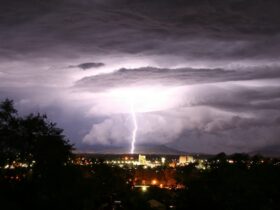A team of astronomers released new data of a bizarre star located approximately 15,000 light-years away from our planet. What’s more intriguing is that this type of star is also unique and displays never-seen-before activity.
As the Universe sometimes unfolds before our eyes, other times is challenging us to figure out why some cosmic features act the way they do. The newly found star in question puzzles astronomers’ work with its unusual activity.
Here is what you need to know.
Reckless Star Proves the Universe is Even More Complicated
Back in 2020, a team of astronomers detected what it seemed to be a magnetar. They dubbed it Swift J1818.0-1607 and began their observations.
Swift J1818.0-1607 is part of a rare category of neutron stars that form when supergiant stars can’t go supernova, ultimately collapsing into extremely thick cores.
Swift J1818.0-1607 insights

The team conducted more observation in-depth from the ARC Center of Excellence for Gravitational Wave Discovery (OzGrav) in Australia. The findings are genuinely intriguing.
Swift J1818.0-1607’s radio pulses appeared to be distinctly changing, from a bright/weak flickering in June to an odd mix of magnetar-like and pulsar-like radio pulses by July. The reason?
Marcus Lower from Swinburne University and CSIRO released a statement discussing the never-seen-before event. He said:
“Maybe this magnetar evolved from a more regular pulsar over time; […] this raises a number of questions.”
The new batch of observations of Swift J1818.0-1607 comes with a few explanations.
For instance, astronomers believe that the star’s magnetic axis isn’t aligned with its rotation axis. Instead of that, it is dipping into its southern hemisphere.Â
But that behaviour would be a first for a magnetar. Magnetars’ magnetic fields are usually aligned with their spin axis.
One thing is sure. Astronomers still need to perform more observations to figure out what’s really going on with Swift J1818.0-1607.Â
The findings have been published in Monthly Notices of the Royal Astronomical Society.












Leave a Reply